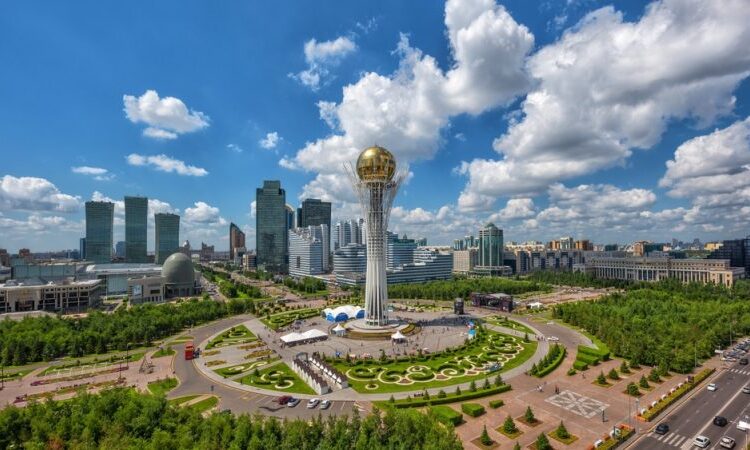Kazakhstan seeks $150 billion of foreign investment in the next five years – Euractiv

Kazakhstan’s innovation agenda aims to attract $150 billion of foreign investment in the next five years while doubling the country’s GDP. Kazakh President Kassym-Jomart K. Tokayev is looking to Europe to realize the funding project.
President Tokayev’s innovation agenda extends beyond national borders, looking directly to Europe for new collaboration. By fostering more partnerships with European counterparts, Kazakhstan aims to unlock untapped potential and accelerate economic growth.
In December, Tokayev signed a landmark decree empowering the Investment Promotion Council (also known as the Investment Headquarters) to enhance the efficiency of the inward investment process, with the specific objective of supporting the President’s goal of doubling GDP to $450 billion by 2029. To achieve this target, Kazakhstan must attract at least USD 150 billion in foreign investment.
European companies in Kazakhstan
In Kazakhstan, more than 44,900 companies have foreign participation, with around 7% (over 3,200 companies) having EU shareholders and capital.
Notably, the Astana International Financial Centre (AIFC) hosts nearly 2,800 registered companies, including 143 with EU capital. “Most of them are from Cyprus, the Netherlands, Germany, Italy and Poland, they span various sectors, such as financial services, IT, communications, trade and manufacturing,” Renat Bekturov, Governor of the AIFC told Euractiv.
Since its establishment in 2018, the AIFC has attracted $11.9 billion in investments.
“Our mission extends beyond Kazakhstan’s borders – we are a financial hub serving the Central Eurasian region and we aim to increase the number of investments and attract mainly financial institutions with well-known brands,” said Bekturov.
Drawing inspiration from successful financial centres like Hong Kong and Dubai, the AIFC operates under English Common Law principles.
Navigating challenges and de-risking investments
The AIFC’s inception was triggered by the global financial crisis, prompting the Kazakh government to explore innovative ways to mobilise capital. The government recognised the need for a proper capital market—one that combines private and public capital.
Kazakhstan’s growing appeal to investors, coupled with its status as the largest economy in the region, provided a strong foundation for this endeavour.
The AIFC operates with a two-fold mission. Firstly, it aims to attract investments to Kazakhstan, positioning itself as a de-risking platform for foreign investors. “This involves addressing various factors, from language accessibility to robust legal frameworks,” explains Bekturov.
Secondly, the AIFC is dedicated to creating a robust financial hub that serves the entire region, Bekturov added: “We firmly believe that entrepreneurs must have the ability to attract resources for business growth.”
Key investment areas
He underscores the critical importance of talent, capital, and an enabling environment to foster innovation. Key investment areas of interest include IT, transportation, financial services, renewable energy generation, and agriculture.
Surprisingly, the IT industry has emerged as a dynamic force in Kazakhstan.
“As global analysts have noted, it is one of the key sectors driving development in the country. The government has played a significant role in fostering this growth,” said Bekturov.
“Notably, our e-government services have garnered recognition from the United Nations, placing Kazakhstan among the top 30 countries in terms of online government service accessibility.”
Green hydrogen partnership
Green hydrogen production is gaining traction as well, thanks to partnerships with German-Swedish company Svevind.
The company plans to construct solar and wind power plants with a combined capacity of 40 gigawatts, producing up to two million tons of green hydrogen that can be converted to 11 million tons of green ammonia annually from 2032. The project will enable Kazakhstan to supply large volumes of hydrogen to European markets and speed up the country’s green transition.
As a financial hub, Bekturov aims to attract a broader spectrum of financial institutions, he said: “Asset managers, depositaries, insurance companies and other key players are essential for creating a robust financial ecosystem”.
By enhancing capital flow, the AIFC aims to create a more liquid and effective financial environment, positioning Kazakhstan as a dynamic player in the global financial landscape, as the AIFC’s exchange facilitates direct access to brokers, connecting professionals from London and other European jurisdictions.
[By Nicole Verbeeck I Edited by Brian Maguire | Euractiv’s Advocacy Lab ]

